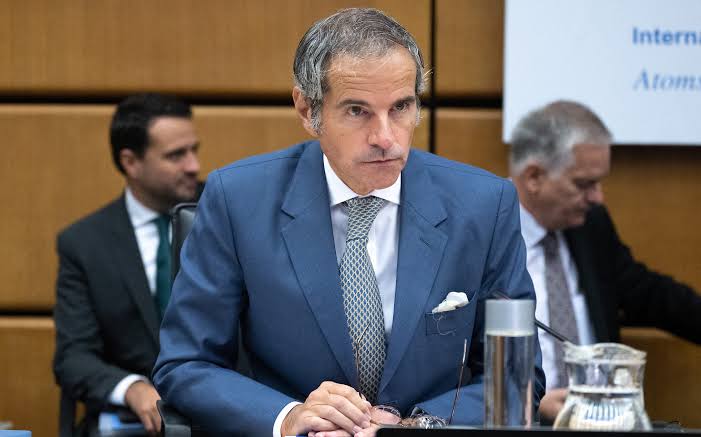News Investigators/ The UN nuclear watchdog, the International Atomic Energy Agency (IAEA) on Friday, gave the most alarming update on the ongoing Israel’s attacks on Iran’s nuclear facilities.
IAEA Director General, Rafael Grossi, warned the UN Security Council that Israeli attacks on Iranian nuclear facilities were degrading critical safety systems and placing millions at potential radiological risk.
Mr Grossi said at Natanz, the destruction of electricity infrastructure and direct strikes on enrichment halls had led to internal contamination.
Mr Grossi said while no radiological release has been detected outside the facility, warned that uranium compounds now posed significant health hazards within.
At Isfahan, the UN nuclear watchdog boss said multiple buildings including a uranium conversion plant and a metal processing facility, were hit.
At Arak’s Khondab reactor site, he said that damage was sustained, though the facility was not operational.
The greatest risk, however, he said, is the Bushehr Nuclear Power Plant, which remains operational.
Mr Grossi warned that a direct strike “could result in a high release of radioactivity to the environment.”
He stressed that even a disruption of its external power supply could lead to a core meltdown.
In the worst-case scenario, radiation would affect populations hundreds of kilometres away and require mass evacuations, he warned.
Mr Grossi also warned against any attack on the Tehran Nuclear Research Reactor, which could endanger millions in the capital.
“Nuclear facilities and material must not be shrouded by the fog of war,” he said.
“We must maintain communication, transparency and restraint,” the IAEA chief stressed.
Mr Grossi pledged that the IAEA would continue to monitor and report on nuclear safety conditions in Iran and reiterated his readiness to mediate.
He stressed that the agency “can guarantee, through a watertight inspections system,” that nuclear weapons will not be developed in Iran, urging dialogue.
“The alternative is a protracted conflict and a looming nuclear threat that would erode the global non-proliferation regime,” he stressed.
NAN
